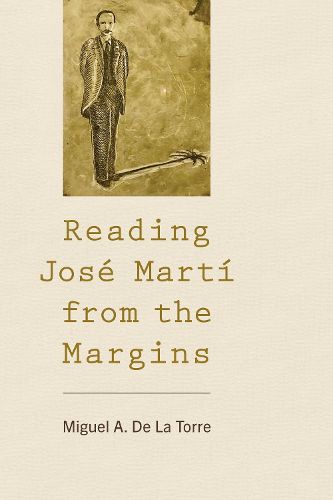Readings Newsletter
Become a Readings Member to make your shopping experience even easier.
Sign in or sign up for free!
You’re not far away from qualifying for FREE standard shipping within Australia
You’ve qualified for FREE standard shipping within Australia
The cart is loading…






Reading Jose Marti from the Margins explores the construction of Cuban homophobia, racism, sexism, sinophobia and ethnic discrimination which continues unabetted today on both sides of the Florida Straits.
The apotheosis of Marti and the falsification of his thoughts have made it difficult to provide a critical assessment of his contributions to the cause of political and social liberation. In his writings and in his declaration (Montecristo Manifesto), he is among the first Latin Americanists to envision the future of Cuba and the rest of Latin America with the full and equal inclusion of Indians and Blacks. However, he also unwillingly created the foundation for a paternalistic, colorblind social order which contributed to the marginalization of those who fell short of the cis-gendered male Eurocuban ideal. Relying primarily on Marti's own writings, some of which has yet to be translated into English, Miguel De La Torre provides a critical assessment of Marti and shows how some of his work contributes to the construction of intra-Cuban oppression.
$9.00 standard shipping within Australia
FREE standard shipping within Australia for orders over $100.00
Express & International shipping calculated at checkout
Reading Jose Marti from the Margins explores the construction of Cuban homophobia, racism, sexism, sinophobia and ethnic discrimination which continues unabetted today on both sides of the Florida Straits.
The apotheosis of Marti and the falsification of his thoughts have made it difficult to provide a critical assessment of his contributions to the cause of political and social liberation. In his writings and in his declaration (Montecristo Manifesto), he is among the first Latin Americanists to envision the future of Cuba and the rest of Latin America with the full and equal inclusion of Indians and Blacks. However, he also unwillingly created the foundation for a paternalistic, colorblind social order which contributed to the marginalization of those who fell short of the cis-gendered male Eurocuban ideal. Relying primarily on Marti's own writings, some of which has yet to be translated into English, Miguel De La Torre provides a critical assessment of Marti and shows how some of his work contributes to the construction of intra-Cuban oppression.